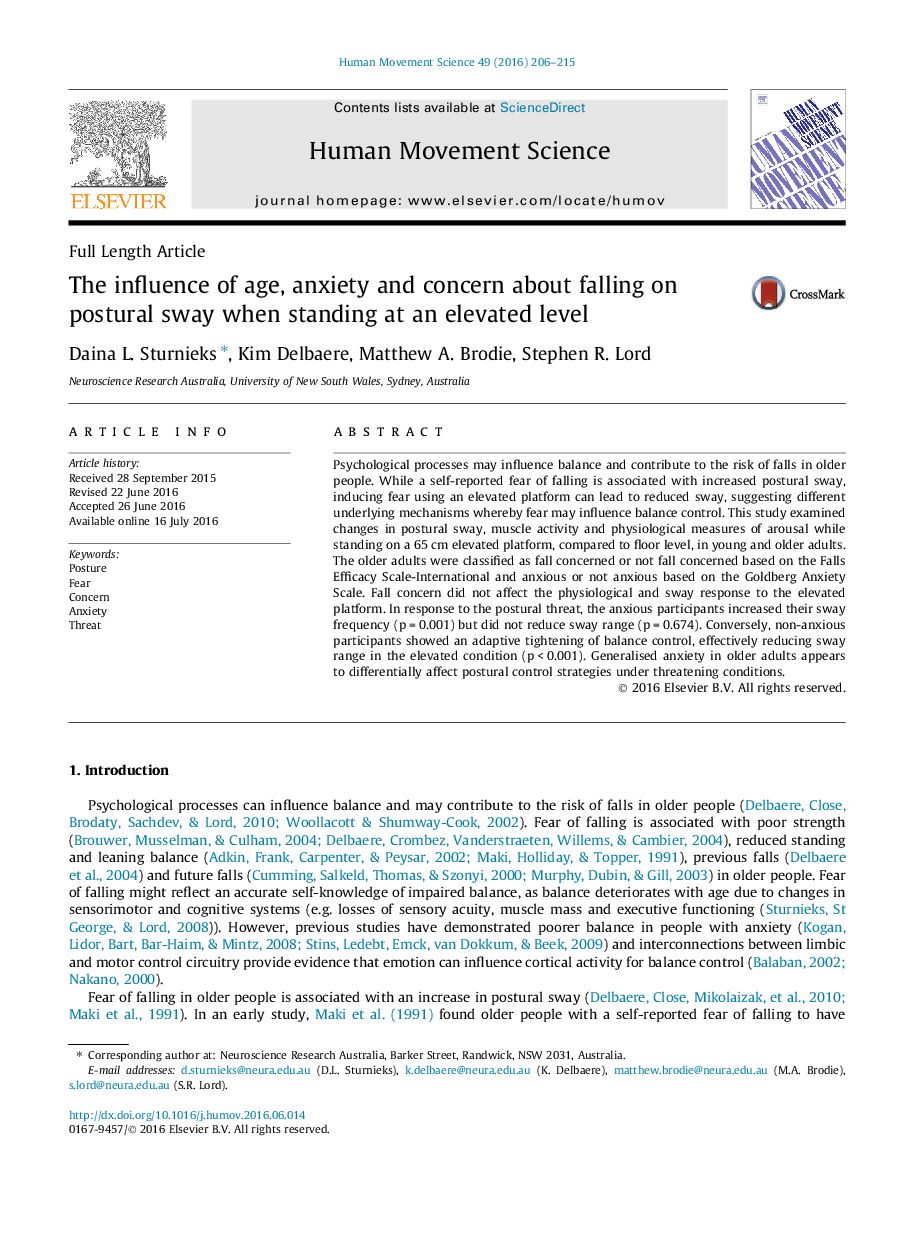| Article ID | Journal | Published Year | Pages | File Type |
|---|---|---|---|---|
| 7291287 | Human Movement Science | 2016 | 10 Pages |
Abstract
Psychological processes may influence balance and contribute to the risk of falls in older people. While a self-reported fear of falling is associated with increased postural sway, inducing fear using an elevated platform can lead to reduced sway, suggesting different underlying mechanisms whereby fear may influence balance control. This study examined changes in postural sway, muscle activity and physiological measures of arousal while standing on a 65 cm elevated platform, compared to floor level, in young and older adults. The older adults were classified as fall concerned or not fall concerned based on the Falls Efficacy Scale-International and anxious or not anxious based on the Goldberg Anxiety Scale. Fall concern did not affect the physiological and sway response to the elevated platform. In response to the postural threat, the anxious participants increased their sway frequency (p = 0.001) but did not reduce sway range (p = 0.674). Conversely, non-anxious participants showed an adaptive tightening of balance control, effectively reducing sway range in the elevated condition (p < 0.001). Generalised anxiety in older adults appears to differentially affect postural control strategies under threatening conditions.
Related Topics
Life Sciences
Neuroscience
Cognitive Neuroscience
Authors
Daina L. Sturnieks, Kim Delbaere, Matthew A. Brodie, Stephen R. Lord,
